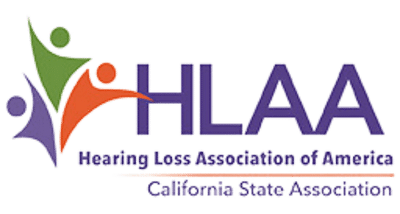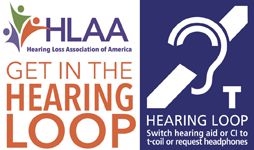Public spaces are purposefully designed around bringing people together – a café, a lounge, or a local theater. For those with hearing loss, however, these spaces can be difficult to navigate. Factors like background noise, poor acoustics, and lack of assistive technology can create barriers that impact communication and limit our full participation.
Background noise and poor acoustics: Restaurants, shopping malls, and public transit stations are often loud places, making it hard to understand speech. Hard surfaces in these places, such as glass, concrete, tile, and high ceilings, create echoes. [WEBSITE]. Public announcement systems may only use audio to present information, which can be problematic for people trying to hear updates about a gate change for their flight or an announcement about the event they’re going to. These messages are also not always displayed in text format, which further limits visual or captioned information available.
Many theaters, museums or event venues also lack loops, FM systems, or captioning devices. [WEBSITE]. Public meeting spaces are not always equipped with real-time captioning or interpreter services. In New York City, a city ordinance around open captioning has been increasing the number of cinemas showing captions for English-language movies [WEBSITE].
Despite these challenges, public spaces can be made more hearing-friendly by improving the sound environment and increasing access to information and technology. For example, acoustic treatments like carpeting and ceiling tiles help to reduce echoes and noise levels. Restaurants that have quiet seating areas or layouts that allow for distance from the noisy bar or kitchen may also be sought. Real-time display boards and visual paging systems can be used for announcements, and venues can offer real-time captioning (CART services) for greater accessibility. Staff who work in these places may benefit from training about how to communicate with people with hearing loss, including strategies and assistive device use. Finally, we can advocate for legal and policy changes to support accessibility features. [WEBSITE]. The Americans with Disabilities Act requires businesses and these entities to provide reasonable accommodations; HLAA and individuals can advocate for hearing accessibility to enforce this legislation consistently.
Public spaces should be welcoming for all. Together, join HLAA in ensuring that these spaces are hearing-friendly!



